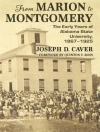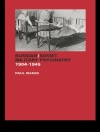As one of the leading historians of Modern Europe and an internationally acclaimed scholar for the past five decades, Konrad H. Jarausch presents a sustained academic reflection on the post-war German effort to cope with the guilt of the Holocaust amongst a generation of scholars too young to have been perpetrators. Ranging from his war-time childhood to Americanization as a foreign student, from his development as a professional historian to his directorship of the Zentrum für Zeithistorische Forschung and concluding with his mentorship of dozens of Ph Ds, The Burden of Germany History reflects on the emergence of a self-critical historiography of a twentieth-century Germany that was wrestling with the responsibility for war and genocide. This partly professional and partly personal autobiography explores a wide range of topics including the development of German historiography and its methodological debates, the interdisciplinary teaching efforts in German studies, and the role of scholarly organizations and institutions.
İçerik tablosu
List of Illustrations
Abbreviations
Acknowledgements
Preface
Introduction: A Poisoned Past
Chapter 1. Child of War
Chapter 2. Adventure America
Chapter 3. Becoming a Historian
Chapter 4. Exploring German Pasts
Chapter 5. The Wild East
Chapter 6. Southern Part of Heaven
Conclusion: German Lessons
A Note on Sources
Books by Konrad H. Jarausch
Selected Bibliography
Yazar hakkında
Konrad H. Jarausch is the Lury Professsor of European Civilization at the University of North Carolina and the past director of the Zentrum für Zeithstorische Forschung in Potsdam/Germany. He is a prize-winning author and/or editor of about fifty books on German and European history. His latest volumes include Broken Lives: How Ordinary Germans Experienced the Twentieth Century (Princeton, 2018) and Embattled Europe: A Progressive Alternative (Princeton, 2021). A former president of the German Studies Association and Chair of the Conference Group for Central European History, he has taught both in the US and Germany and mentored about five dozen Ph Ds.












